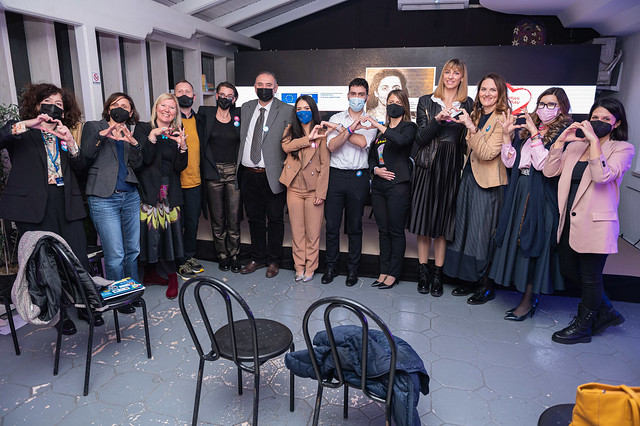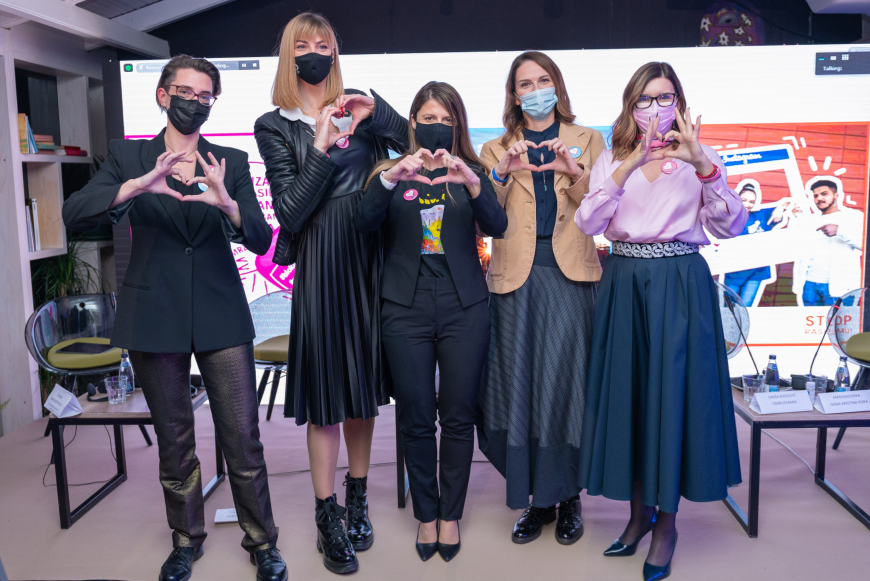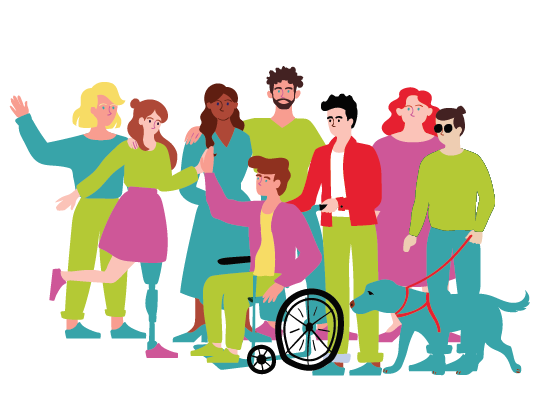Every citizen can have a role in responding to hate speech with positive language and mutual respect. This was one of the key messages at the launching event of the joint awareness-raising campaign of the European Union and the Council of Europe, “Block the hatred. Share the love!”, held today in Podgorica.
The Prime Minister of Montenegro, Zdravko Krivokapic, addressed the event and pointed out that we live in an environment in which many things have been imposed on us, but that hate speech does not happen only in Montenegro, but in every corner of the planet, somewhere less, and somewhere more often. “This is why the old saying ‘Do nothing you wouldn’t want others to do to you’ should be the golden rule and measure of our lives everywhere - from family, through school, to university and beyond. And we should always have three characteristics in front of us. These are: tolerance - which, unfortunately, we do not have much today; respect - which has always been the greatest value in Montenegro and in the family and beyond, and, of course, understanding. An initiative such as this campaign should make us aware of the moment we live in and to more or less awaken our need to understand others", said prime minister Krivokapić.
Evgenia Giakoumoupolou, Head of Operations at the Council of Europe Programme Office in Podgorica, welcomed the participants joining the event online and in-person. In her remarks she pointed at a very practical dimension of citizenship engagement to counter hate speech: “Countering hate speech requires an unequivocal legislative and institutional framework that condemns it and combats it. But beyond that, and most importantly, it calls for a collective response from the whole of society to say ‘no’ to stigma and prejudice, to end the propagation of harmful stereotypes that affect families, friendships and ultimately the fabric of society. Each of our actions, no matter how small, can act as a multiplier to counter hatred and contribute to building an inclusive society, safe for all, and rich of its diversity.”
Tamara Srzentic, Minister of Public Administration, Media and Digital Society, highlighted that beyond the institutional and regulatory framework, combating hatred requires a change in the mindset of people, at the societal level. “It means making citizens aware of how their individual attitudes, words, gestures count. I consider that accepting, or rather embracing, diversity is the first step towards a more inclusive, hate-speech free society”, said minister Srzentic.
“Through implementation of the mandate of the Ombudsperson Institution in Montenegro, we are obliged to point out the key elements of our work which are reflected in proactive, promotional and preventive action in the protection of human rights and freedoms. In such a situation, the Ombudsperson's active role in preventing hate speech is a natural social need and an institutional reaction that is expected, sought and insisted on in preserving the human dignity and basic rights of all people whose freedoms are threatened by abuse of freedom of expression", said Sinisa Bjekovic, the Ombudsperson of Montenegro. “The exhaustive list of reasons why restrictions on freedom of expression can be introduced clearly warns of the increased responsibility of all relevant state entities not to allow the cult of violence (which hate speech is in part) to prevail over a culture of dialogue, tolerance and understanding", he concluded.
Oana Cristina Popa, Ambassador of the European Union in Montenegro, underlined that the EU dedicates utmost attention to the topic of hate speech. “We are witnessing a continuous increase in hate speech and there seems to be very little understanding when it comes to respecting differences, including difference of opinions. This is a very worrying trend, noted also here in Montenegro, specifically online. Children and young people are growing up seeing adults who are angry, disrespectful and intolerant towards others. There are too few role models spreading tolerance and love, and too many spreading hate. Our differences should stimulate love and empathy, rather than trigger hate and this is why this campaign is very much needed”, she said. Ambassador Popa called upon all Montenegrin institutions, civil society organisations, social partners and the private sector to join the joint campaign for equality.
Jeroen Schokkenbroek, Director of Directorate of Anti-Discrimination of the Council of Europe, recalled the role of this Organisation at the forefront of the fight against hate speech in the continent. “Through the ‘No hate speech’ campaign and movement we involved thousands of young activists across Europe. This and many more actions seek to raise awareness of the harmful effects suffered by those targeted by hate speech, to counter the risk of alienation and radicalization and repair the damage to the cohesion of society. This week in Strasbourg, experts from our member states are working hard to agree on comprehensive new European standards for combating hate speech. But we cannot win the battle against hate speech without active engagement by the public. Respecting the dignity and the inalienable rights of all members of the human family is the responsibility of everyone in a democratic society,” he said.

The “Block the hatred. Share the love!” campaign aims to combat various forms of hate speech targeting specific communities and individuals in Montenegrin society. It also aims to inform and educate the society and especially youth, about the role that everyone has in the fight against hate speech.
It will be rolled out online through the social media dedicated channels, in the media, as well as through public events. These activities will involve prominent public figures, institutions and activists, who will promote diversity and equality in Montenegro and in the region, through personal storytelling, testimonies and exchange of good practices.
The No-Hate Speech Ambassadors, prominent public figures such as tennis player Danka Kovinic; the Olympic Champion in high jump Marija Vukovic; Paralympic bronze medal winner in tennis table Filip Radovic; opera singer Tamara Radjenovic; and actress Dubravka Drakic decided to respond to the call of this campaign and engage actively with counter-narratives and behaviours. They will also join and actively take part in this movement.
The campaign is implemented within the action “Promotion of diversity and equality in Montenegro”, that is a part of joint European Union and Council of Europe programme "Horizontal Facility for the Western Balkans and Turkey 2019-2022".



